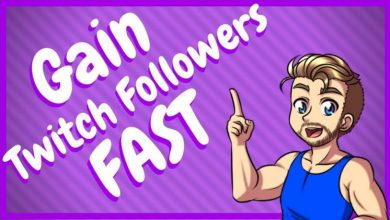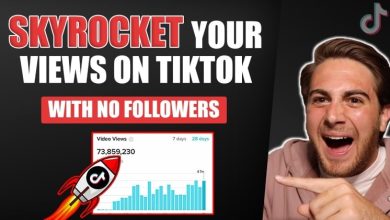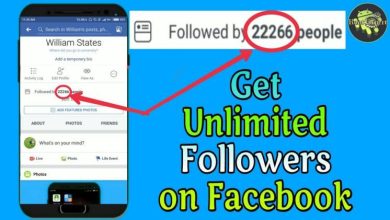How To Develop A Robust Facebook Marketing Strategy For Your Business

With almost three billion monthly active users, Facebook is the most popular social network in the world. The platform is also the most prominent digital marketing channel for almost any kind of business. The sheer number of its users clearly demonstrates how almost every demographic is present on it, making it a marketing paradise for businesses and brands looking to expand their customer base and engage with their existing clients. And just as Facebook started conquering the world of social media, the folks at the company knew they had to take their chance to turn their platform into a hub not just for ordinary users, but also businesses. Facebook also owns one of the most sophisticated and advanced business suites among major social networks. Facebook Ads utilizes cutting-edge technology to help advertisers find their audience more accurately and with reasonable costs. It has reached a point where it’s become an inseparable part of millions of businesses all around the world, regardless of their size and vertical.
If you’re a business owner and looking to adopt Facebook in your marketing efforts, you’ve definitely made a smart choice. But as terrific as Facebook is for achieving a myriad of business goals, marketing on the platform does not mean your success is guaranteed. First of all, the competition is fierce on Facebook and you will be facing an extremely saturated landscape. Next, Facebook’s business side is a bit complicated and if you don’t know your way around, you won’t be able to harness its power. And lastly, advertising on Facebook without a well-thought-out plan would only waste your time and money. So in order to make sure you’ll get the most out of Facebook as a marketing solution, you need to develop a strong Facebook marketing strategy.
Set goals for your Facebook presence first
Unfortunately, many businesses just jump into running ads on Facebook without having a clear idea about what exactly they want to achieve with their campaigns. Before making any decisions, you should ask yourself some basic questions to see if it’s even rational to focus on Facebook. Is your target audience there? Do you have enough resources to use Facebook Ads? The next question should be about your objective on Facebook. What exactly are you trying to achieve? Brand awareness? Or driving traffic to an outlet? After determining your goals, you can adjust your Facebook marketing strategy according to them. Remember that every business is unique, so there’s no single strategy that would work for everyone. Having a clear understanding of why you’re stepping into the world of Facebook marketing will help you tailor your own strategy. (Learn more why here)
Define your target audience
Who exactly are you going to talk to on Facebook? Knowing the answer to this question is very important because it determines many characteristics of your campaigns, like the tone of your message, the creatives, the offers, the targeting, etc. We strongly recommend that you do some customer research before you jump on the Facebook ads train. Try to determine these factors about your audiences:
- Location
- Age
- Gender
- Race and ethnicity
- Religion
- Job position and income
- The problems they have
- How your product or service could help them
User Custom and Lookalike Audiences
One of the impressive features of Facebook Ads is how it easily lets you create several lists of your audiences. This removes the need to manually select target audiences while creating campaigns (and missing a lot of opportunities in the process). Custom Audiences lets you connect with the people who, one way or another, have shown interest in your brand. What Facebook does here is that it receives a list of customer data and then matches list items with their Facebook profiles and creates a “Custom Audience” list for your ad account. You can then select this list as the target audience for your campaigns.
Lookalike Audiences lets you create lists of users who share the same interests and characteristics as your current audiences. Facebook gives you the option to select the level of similarity to your current audience on a scale of %1 to %10. The higher you go, the bigger and broader your audience will become. Facebook requires you to assign a source for creating the lists. This source could be a custom audience list, the data collected by Facebook Pixel, or the people who follow your Facebook Page.
Create a marketing funnel
Creating a funnel for your business is arguably the most crucial step in shaping your Facebook marketing strategy. A marketing funnel determines the journey your clients take from the first moment they become aware of your brand, to the point where they purchase from you and become your customers. It has several stages that show their level of familiarity and trust toward your brand and guides you in how to drive them to the bottom of the funnel. Here are the main stages of a marketing funnel:
- Awareness – Top of the funnel: At this stage, people have never heard of your brand and are just starting to notice you. The goal here is to grab their attention without going for the hard sell right away. You’ll introduce your brand with your Facebook ads and make them interested.
- Consideration – Middle of the funnel: The next stage in the funnel is encouraging the people you’ve just attracted to consider what you offer to solve a problem they have. You should highlight your strengths and show your uniqueness. For this to happen, you can publish more detailed content or video ads.
- Conversion- Bottom of the funnel: The conversion stage is where you go for the kill. Prior to this stage, you have grabbed potential customers’ attention, and nurtured them down your customer journey to show them how your product or service best fits their needs, and now all you need is a little push to convert them into actual customers. This push could be a tempting incentive or a clever retargeting campaign.
Your marketing funnel determines the direction of your whole campaign. Each stage requires a different tone, creative, copy, and even ad placement. Read our article on paid advertising funnel to learn more about this essential marketing tool.
Monitor performance and optimize your campaigns
Don’t assume you are all done after creating a robust strategy and running some promising campaigns. The winning Facebook marketing strategy is the one that’s being constantly optimized and improved. Luckily, Facebook provides you with tons of performance insights and testing options to help you in this process. Keep track of your campaign performance, test different combinations of ad copies, creatives, placements, and formats to find out which one resonates more with your audience. This way, you’ll minimize your cost-per-click and get the most bang for the buck.





